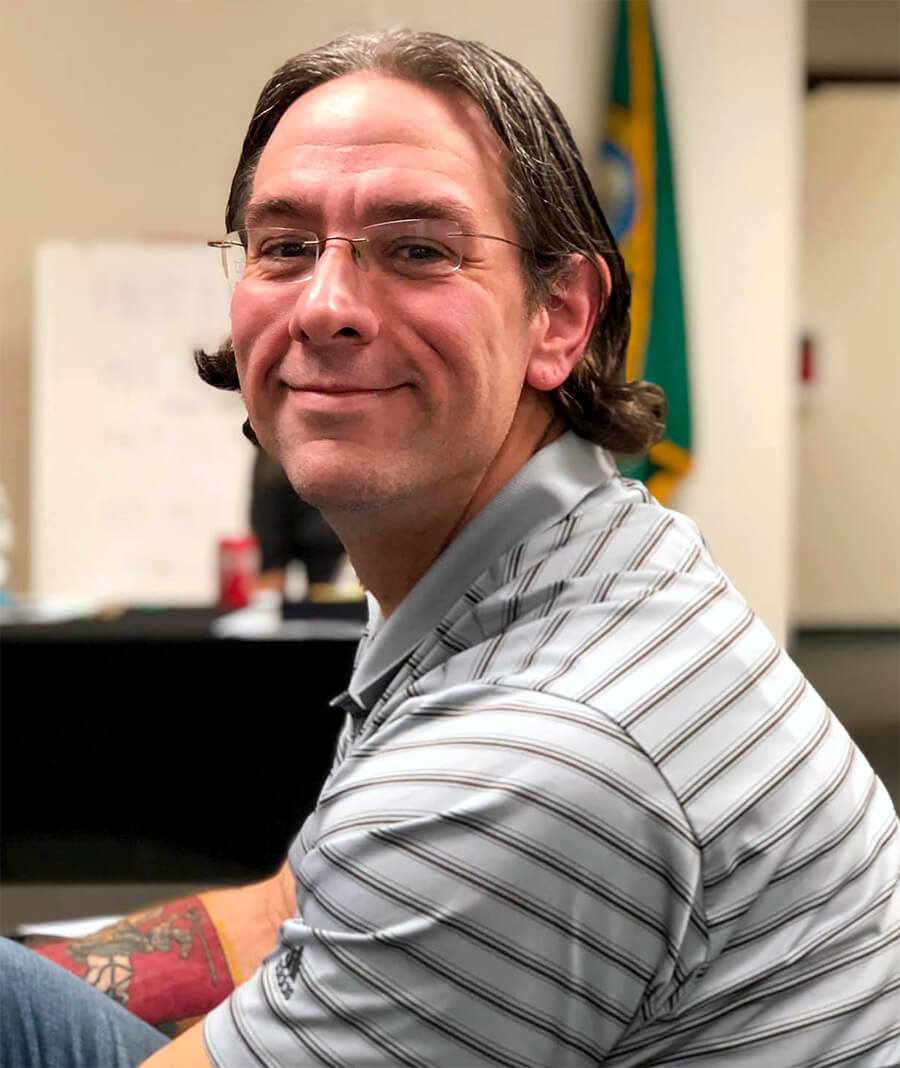
Four behavioral health workers talked about the challenges they’re facing during the COVID-19 pandemic on a press call hosted by the AFL-CIO on Friday.
One of them was Mike Yestramski, a psychiatric social worker at Western State Hospital and president of AFSCME Council 28/WFSE, which represents approximately 45,000 public service workers throughout Washington state.
“Because we are not a medical hospital, we are not equipped or afforded the same level of personal protective equipment that we need to prevent exposure,” Yestramski said. “Few workers have adequate protective gear.”
Yestramski said that after battling with managers, WFSE was able to extract a meager concession from them to allow workers to bring in their own personal protective equipment (PPE) from home, not provided by the employer. He also said that six patients and 15 staff members have contracted COVID-19. Two patients have died so far.
Yestramski also described the dangerous physical layout of his facility, as well as how the presence of COVID-19 in the facility has harmed the important therapeutic work that takes place there. Washington State hospital’s clients have severe cognitive or psychiatric impairments. Some are violent or require around-the-clock assistance and physical aid.
“At Western State Hospital, our facilities are older – they have narrow hallways. Clients often share a room or bunk up, and we do not have the air filtration systems that they have in modern medical centers,” he said.
“Beyond the physical harm this virus poses, there are serious implications with respect to how we can treat clients in the current environment,” he added. “In most cases, group therapy sessions are no longer possible. Routines that keep patients on an even keel are being broken and that is causing increased agitation, especially among clients who don’t understand what and why this is happening.”
He called for greater assistance from the White House and Congress to prevent an even bigger catastrophe.
“We are aware there are some inherent dangers with our work, but we didn’t sign up for a suicide mission,” concluded Yestramski.
Other mental health practitioners representing a range of union voices from across the country – a Department of Veterans Affairs clinical psychologist, a school social worker and a behavioral health clinician – described the toll the pandemic is taking on their communities, stressed the urgent need for PPE and, perhaps most importantly, underscored the great need for behavioral health workers during this time of global uncertainty and anxiety.
Liz Shuler, AFL-CIO’s secretary-treasurer, paid tribute to the essential work that behavioral and mental health workers perform.
“These folks are real leaders. … These health care professionals are on the front lines, risking their own health,” Shuler said. “We need them now more than ever. The coronavirus is putting our country to the test, financially and emotionally.”